Iran FM: Algeria’s vote against Israel's membership at African Union laudable
Iran’s foreign minister has lauded a recent vote by Algeria in opposition to Israel's membership at the African Union (AU), noting that it was the most logical position to be taken by Algiers on this matter.
"Algeria has acted based on wisdom and logic,” Hossein Amir-Abdollahian told his Algerian counterpart, Ramtane Lamamra, in a phone conversation on Thursday as he praised Algeria's negative vote for Israel’s membership at the AU.
“This measure, which was taken by you, in addition to Algeria's rational stance on Syria's return to the Arab League are valuable," Amir-Abdollahian added.
The Iranian foreign minister also expressed hope that the forthcoming meeting of the Arab League be ensued with significant benefits for the Muslim Ummah.
Referring to cordial political relations between Iran and Algeria, Amir-Abdollahian voiced optimism that the ties between the two countries would further develop in all fields.
Lamamra, for his part, officially invited the top Iranian diplomat to visit the North African country while underlining the importance of forming a political committee between Tehran and Algiers as well as a committee to pursue development of bilateral relations.
Back in August, the Algerian foreign minister chastised the chairman of the AU Commission for defending his decision to grant Israel observer status at the African bloc, saying insistence on the measure will eventually result in the breakup of the regional organization.
Israel announced on July 22 that it had joined the influential pan-African body, which debates continental issues, as an “observer state,” after unsuccessful lobbying for nearly 20 years.
The news elicited lukewarm response from some member countries of the union, who had for years blocked the move, citing the regime’s horrendous war crimes in Palestine.
For almost two decades, since the disbandment of the Organization of African Unity (OAU) in 2002, Israel had made futile attempts to join the African Union, which replaced the OAU.
However, the move was always thwarted by members of the union, who even called for an end to the Israeli occupation of the Palestinian territories in February.
Iran FM: We are ready for ‘good agreement’ in Vienna talks
Later on Thursday, Amir-Abdollahian had a phone conversation with his Emirati counterpart, Sheikh Abdullah bin Zayed bin Sultan Al Nahyan, discussing international and regional developments as well as other issues of mutual interest to both sides.
Explaining on the forthcoming talks in the Austrian capital on the removal of Iran sanctions, Amir-Abdollahian said, “We are ready to reach a good agreement [through Vienna talks] and believe that both sides [of the nuclear agreement] must return to [full compliance with] their commitments.”
He added that relations between Tehran and the United Arab Emirates are of special importance to both countries, adding, “We are certain that improvement in relations will lead to full developments of mutual cooperation.”
The Emirati minister, for his part, pointed to problems on the way of boosting bilateral trade between the two countries, noting that Iranian and Emirati experts are working to find solutions to those problems.
The UAE foreign minister also invited Amir-Abdollahian to pay an official visit to his country, which was reciprocated by Amir-Abdollahian’s invitation for his Emirati counterpart to visit Iran.
Envoys from Iran and the P4+1 group of countries — Britain, France, Russia, and China plus Germany — are expected to hold the seventh round of discussions in Vienna on November 29.
The negotiations were paused in June, when Iran held a presidential election. Since then, the new Iranian administration has been reviewing the details of the six rounds of discussions held under the previous administration.
Former US President Donald Trump left the nuclear deal with Iran, officially known as the Joint Comprehensive Plan of Action (JCPOA) in May 2018 and re-imposed the anti-Iran sanctions that the deal had lifted. He also placed additional sanctions on Iran under other pretexts not related to the nuclear case as part of his “maximum pressure” campaign.
Following a year of strategic patience, Iran resorted to its legal rights under the JCPOA, which grants a party the right to suspend its contractual commitments in case of non-compliance by other signatories, and let go of some of the restrictions imposed on its nuclear energy program.
The US administration of Joe Biden has said it is willing to compensate for Trump’s mistake and rejoin the deal, but it has shown an overriding propensity for maintaining some of the sanctions as a tool of pressure.
Tehran insists that all sanctions should first be removed in a verifiable manner before it reverses its remedial measures.
Yemenis, Jordanians reiterate support for Palestinians in Gaza
Iranians rally nationwide in support of Operation True Promise
Raeisi: Operation True Promise ‘a necessary response’ to Israel
OIC slams US for blocking Palestine’s bid for full UN membership
US police arrest 108 pro-Palestine protesters at Columbia University
Top commander names four 'historic achievements' of Operation True Promise
VIDEO | Iranian attack and crisis of entity
UN chief: Israel’s war turned Gaza into 'humanitarian hellscape'


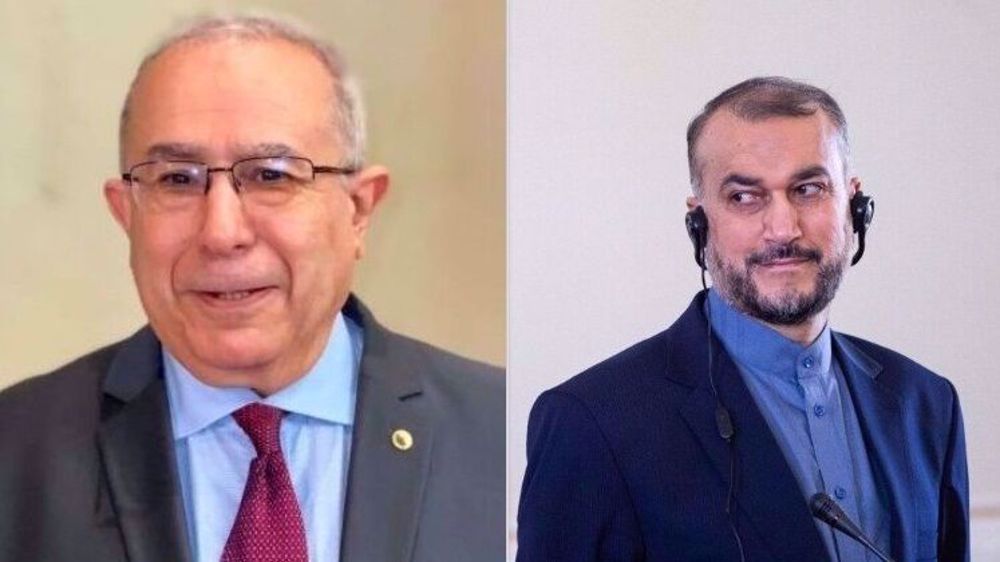
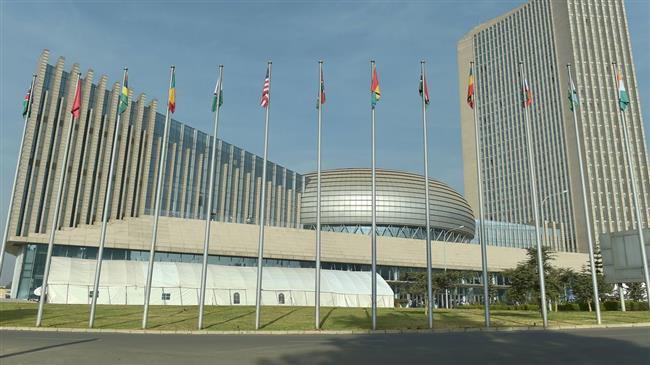
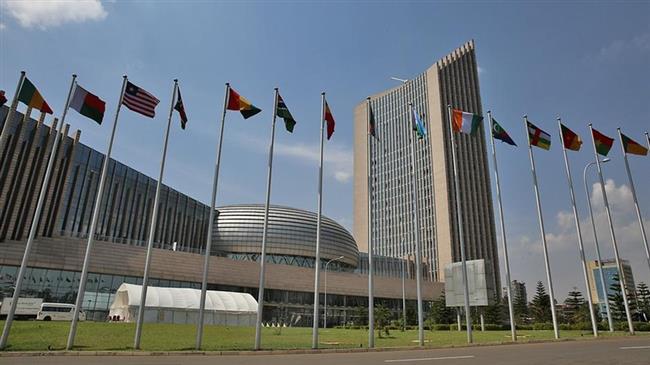
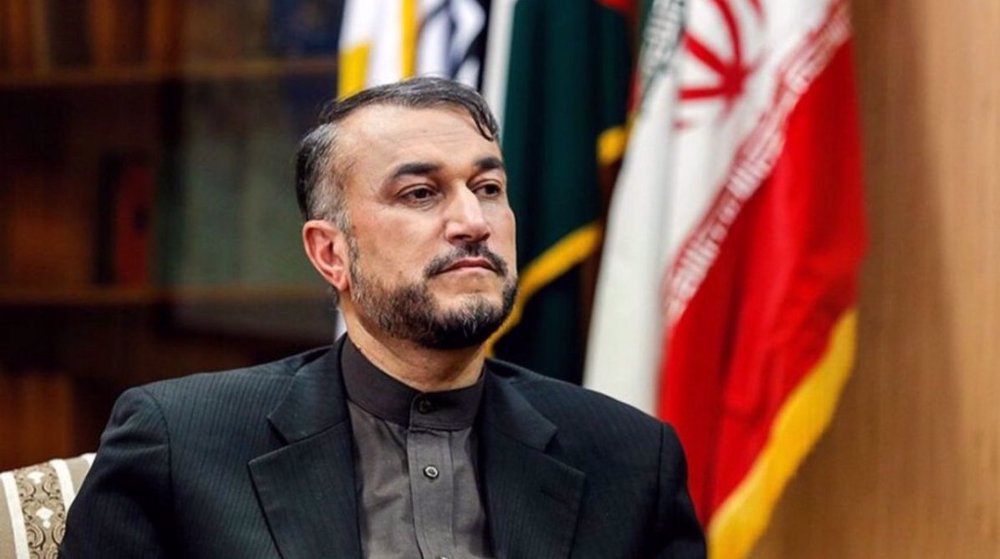
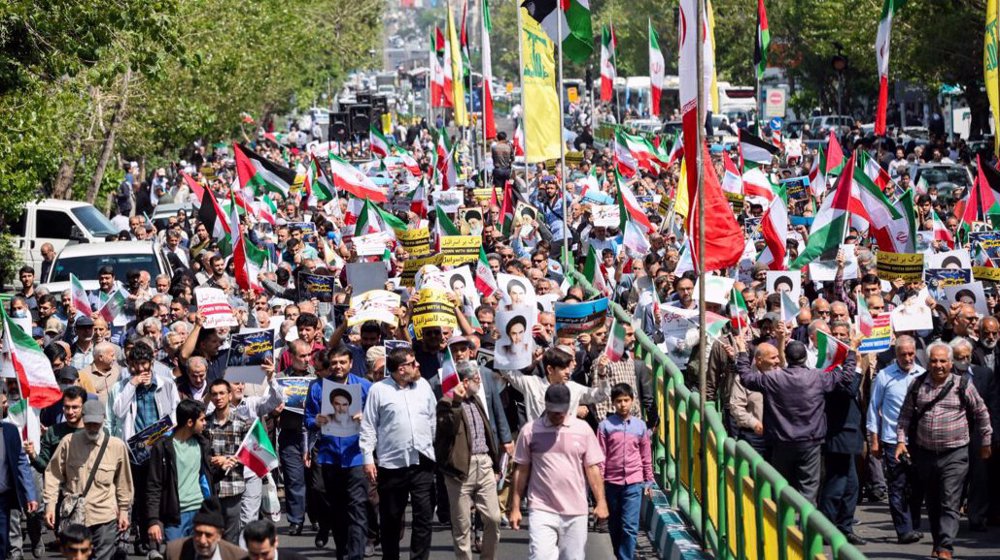
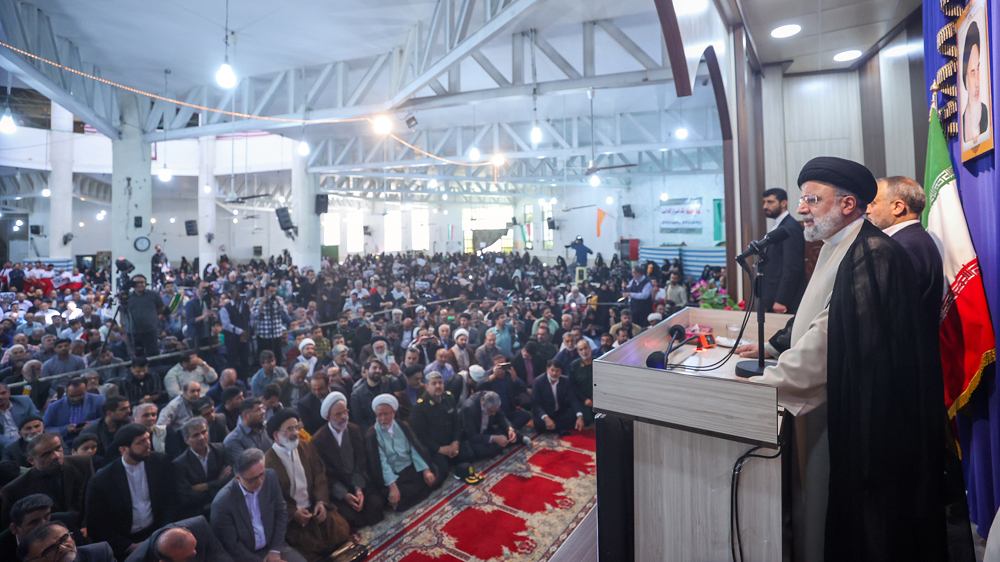
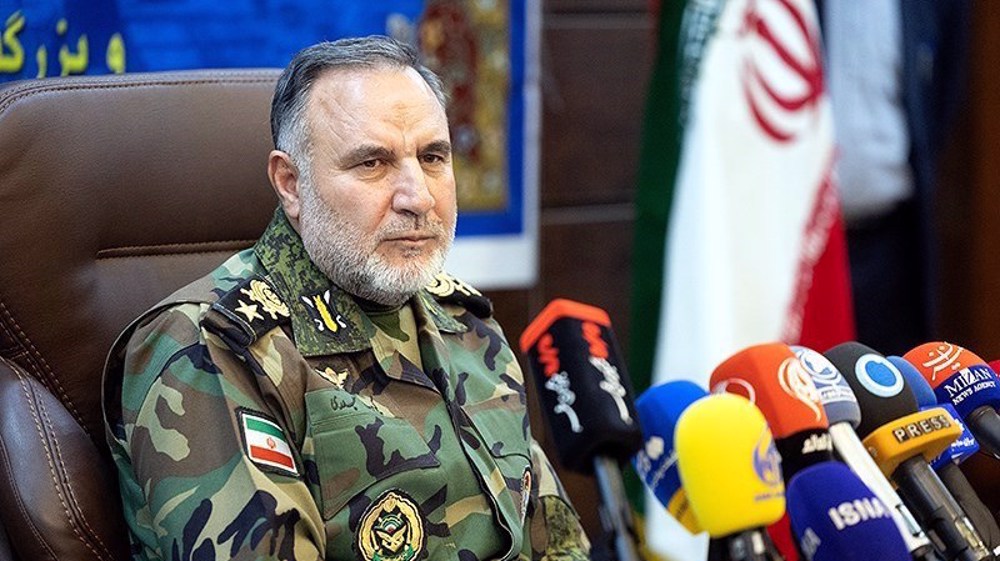




 This makes it easy to access the Press TV website
This makes it easy to access the Press TV website